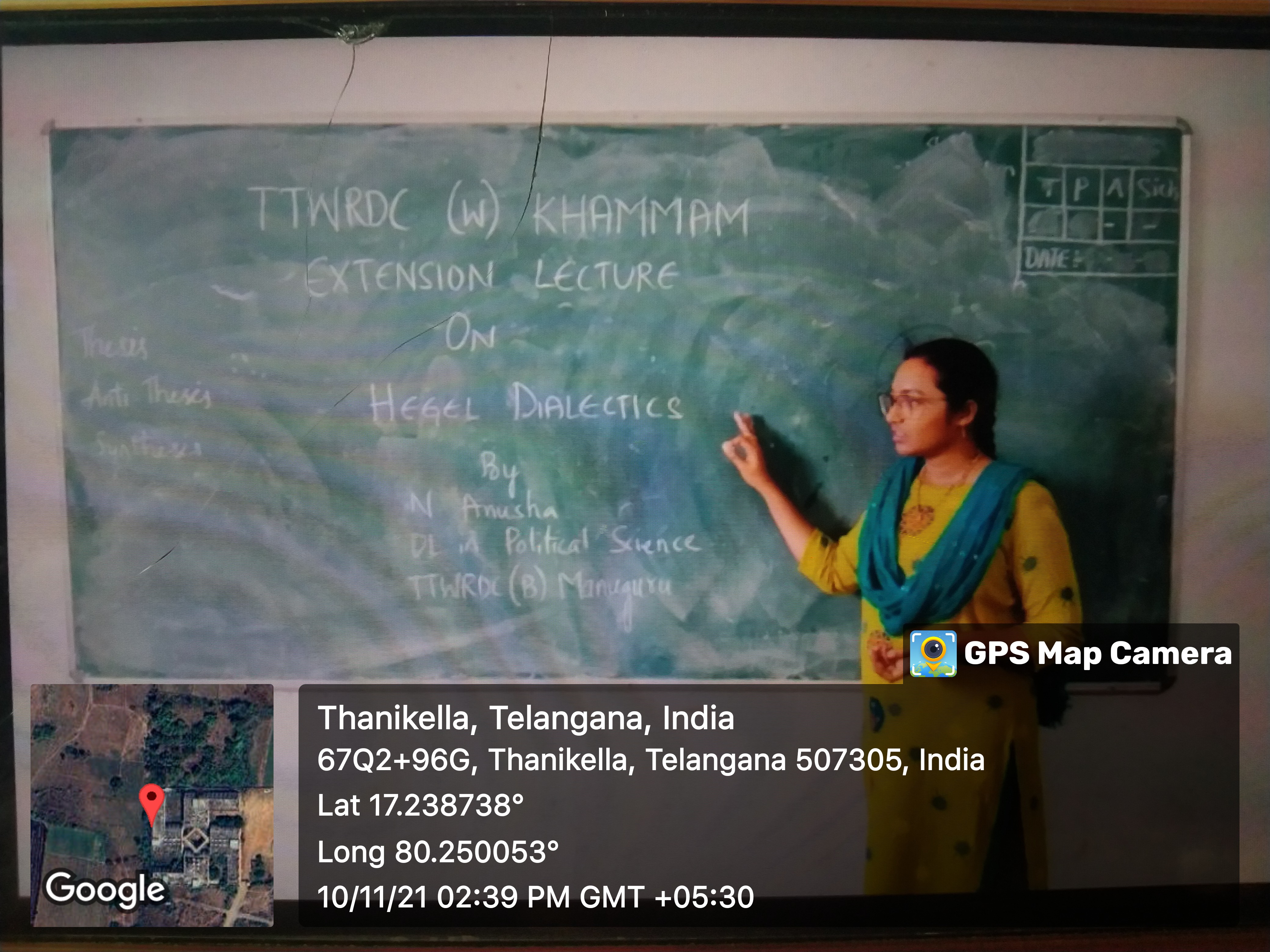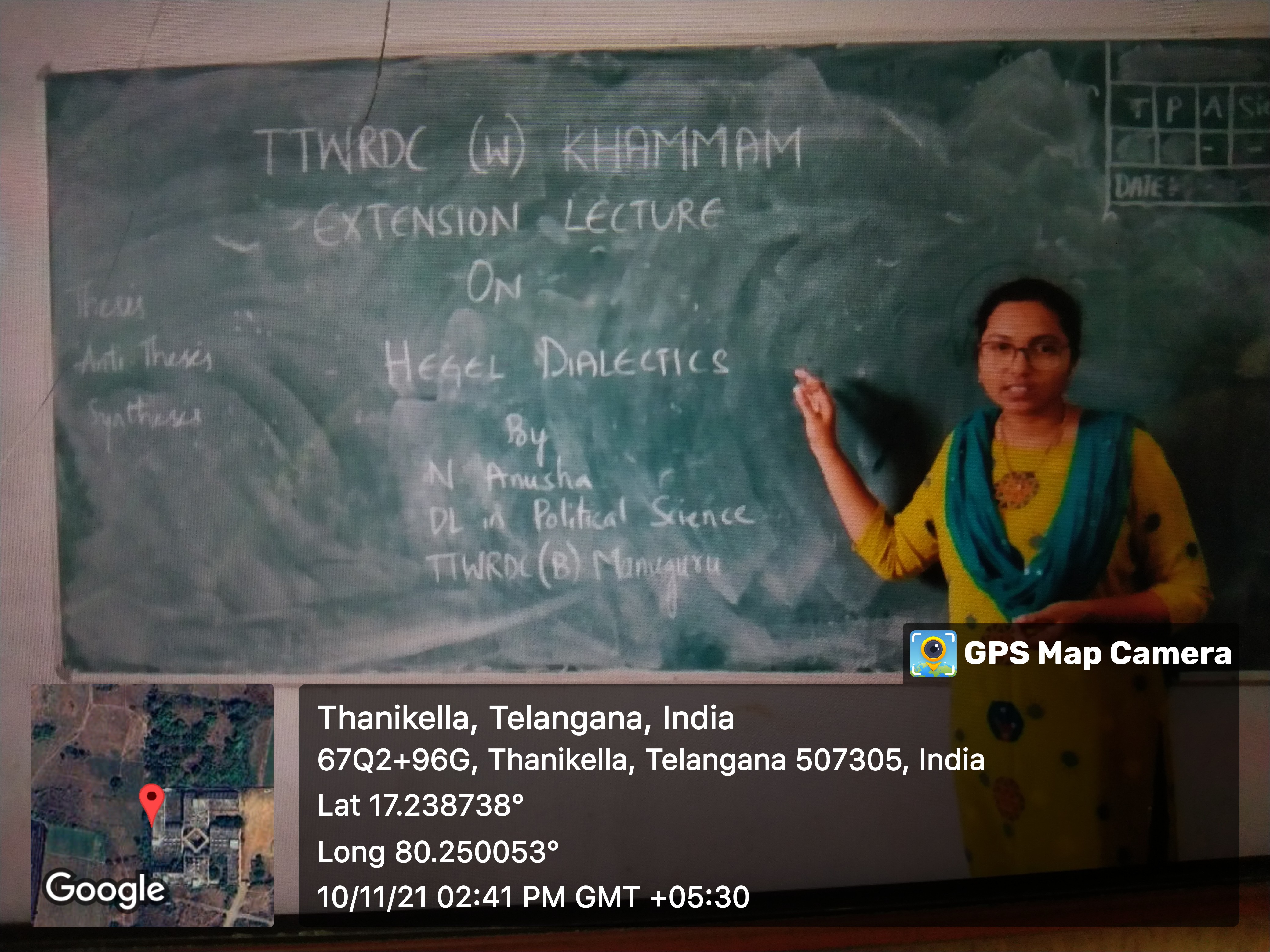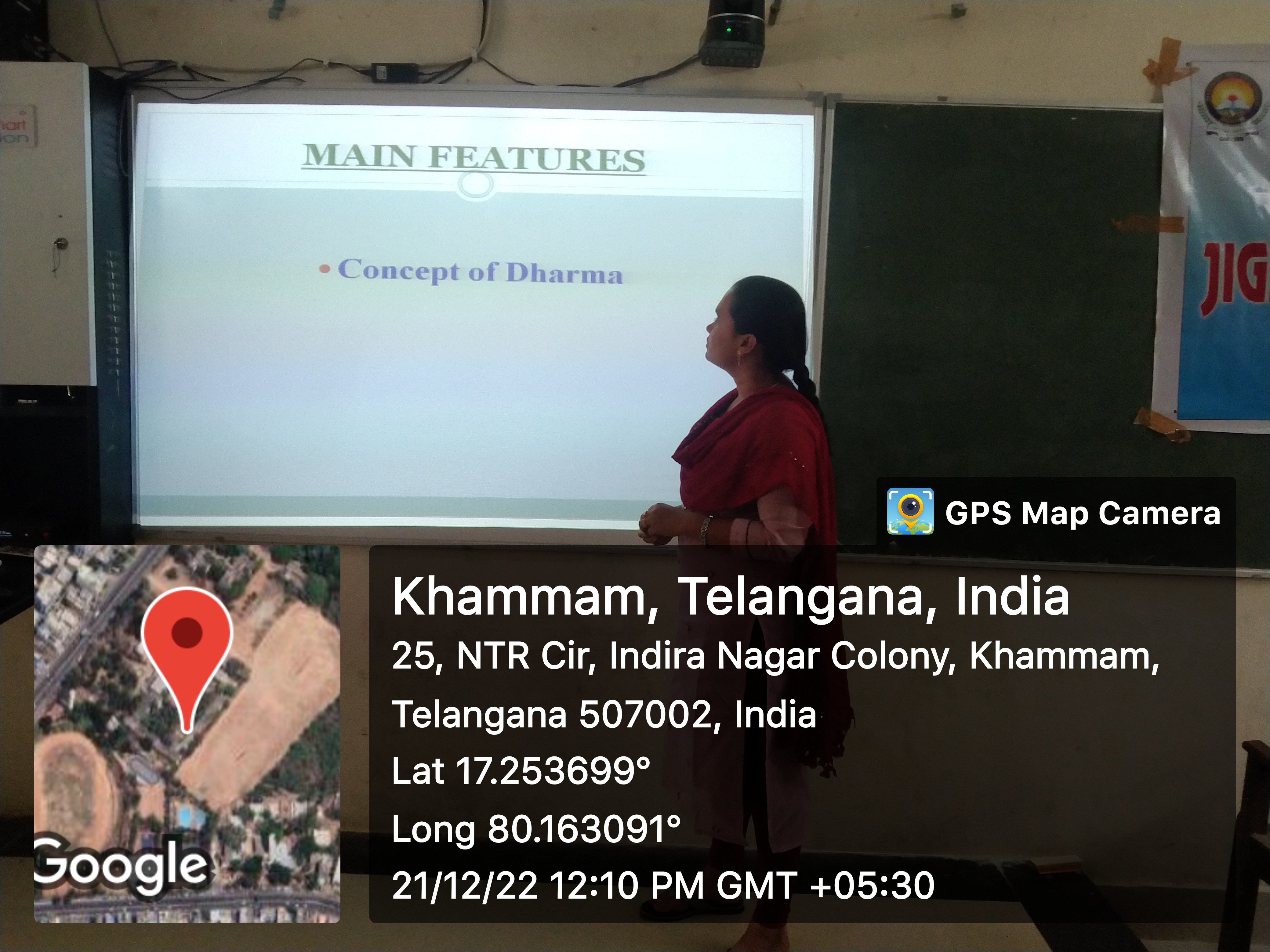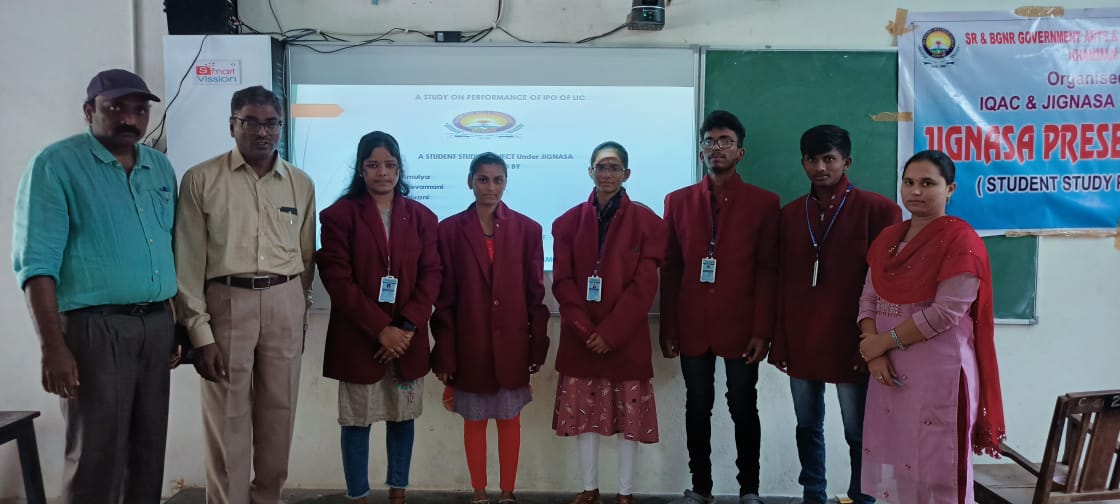Departments - POLITICAL SCIENCE - Extension Activities
DEPARTMENT OF POLITICAL SCIENCE
Date. : 10-11-2021
Venue : Seminar hall at TTWRDC W KHAMMAM
Speaker : Nalaganti Anusha
DL in Political science,
TTWRDC M MANUGURU
Introduction: On 10 th November 2021, the department of Political science has the privilege of hosting an extension lecture by N. Anusha gaaru a renowned lecturer at TTWRDC M MANUGURU, Kakatiya University. The lecture focused on George Wilhelm Friedrich Hegel’s dialectical theory, a cornerstone of his philosophical system.

Overview of Extension lecture: Nalaganti Anusha gaaru began by situating Hegel within the historical context of German idealism, highlighting his influence on subsequent philosophical thought. She explained that Hegel’s dialectical theory is a method of understanding the development of ideas and reality through aprocess of contradiction and resolution. The dialectic she noted, involves three stages( Thesis, Antithesis, Synthesis) and also sheelaborated about key concepts in Hegel’s dialectic, application ofthe dialectical method.
She also elaborated of significance andcritique as the significance of dialectical method in providing a dynamic and integrative approach to understanding reality. She pointed out that Hegel’s influence extends beyond philosophy to fields such as political theory, theology, and social sciences.
However she also addressed some critiques as Hegel’s witting is notoriously difficult, which has left to various interpretations and misunderstandings.

Conclusion: N. Anusha gaaru highlighted the enduring relevance of Hegel’s dialectical theory. She encouraged the audience to engage with Hegel’s works critically, appreciating both their propounded insights and challenges they present.The Q&A session that followed allowed for a stimulating discussion, with participants exploring the implications of Hegel’s dialectic in contemporary philosophical and social contexts.
Participants : All BA political science students
Conducted by : M. Navya
HOD of political science
TTWRDC W KHAMMAM
EXTENSION LECTURE AT SR&BGNR COLLEGE
EXPLORING MANU’S VARNA DHARMA
Name : M. Navya
Date : 21-12-2022
Venue : DEPARTMENT OF POLITICAL SCIENCE LECTURE HALL,
SR&BGNR COLLEGE,
KHAMMAM
Introduction: On 21 st December 2022, I had the privilege of delivering anextension lecture at SR& BGNR College on the topic of “Manu’ VarnaDharma ”. This lecture aimed to provide an in depth understanding of the ancient Indian social classification systems as described in the Manusmriti.The event was organised to educate students on the historical significance of Varna Dharma and it’s implications in contemporary society. The lecture was attended by approximately 52 students and faculty members, all eagerto delve into the complexities of this ancient doctrine.

Overview or main content of the Lecture: The lecture highlighted the historical context of Manusmriti and the societal norms of ancient India. The interpretation of Manusmriti in modern times has been a subject of debate,with some viewing it as a blueprint for social division and inequality, while others see it as a framework for preserving social harmony and order. In the lecture various points are elaborated by speaker, those are origins and historical context, duties and roles of each Varna, criticism and contemporary relevance.The speaker ( M. Navya) HOD of the department of polotical science of TTWRDC(G)KHAMMAM emphasized that the Varna Dharma system must be understood in its historical context and not necessarily applied rigidly in contemporary society. At the end of the session Q&A session conducted to participants, students are participated very enthusiastic in this session. Finally students and faculty has given great support to the speaker, they are forwarded their
feedback too.

Conclusion :
The lecture on “Manu’s Varna Dharma” offered anounced understanding of the ancient Indian text and it’s implications for social organization. It encouraged critical thinking about the relevance of these ancient concepts in contemporary discussion on societal structures and governance. The balance between traditional and modern interpretations of Manusmriti remains a topic of significance in both academic and societal discourse.
